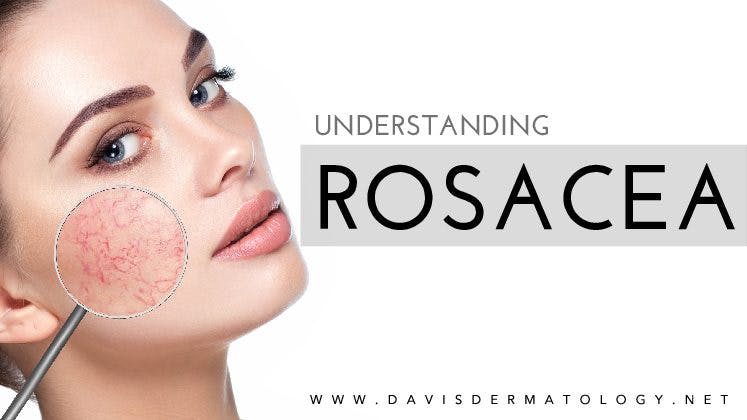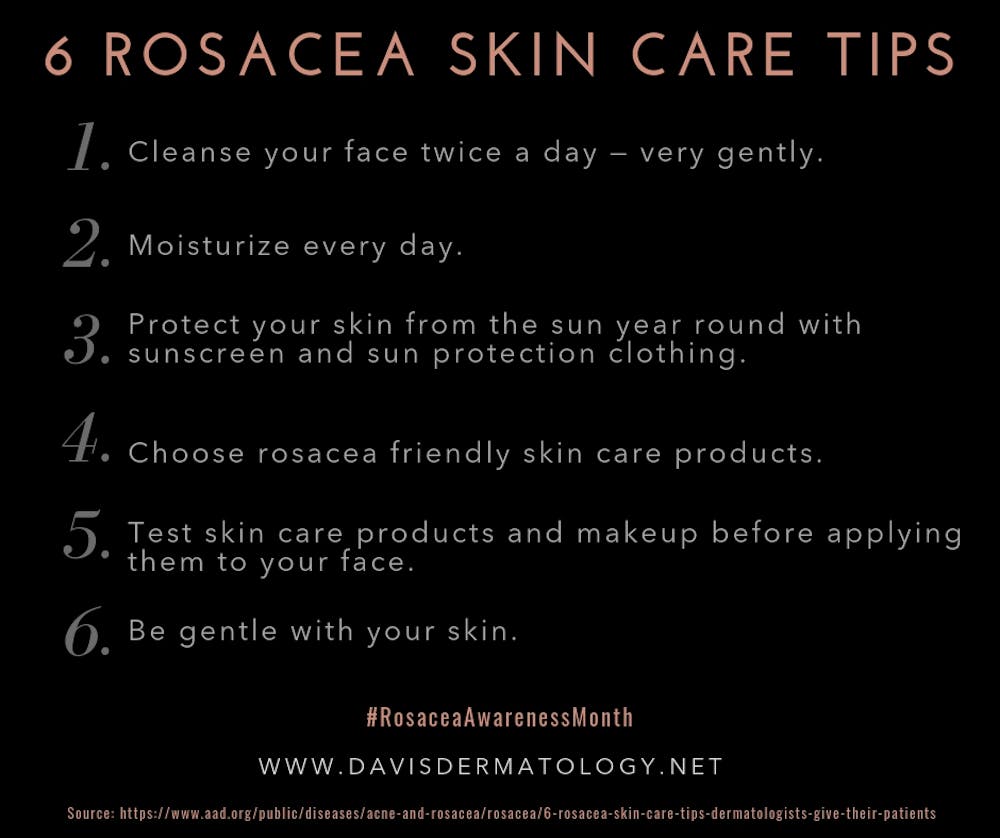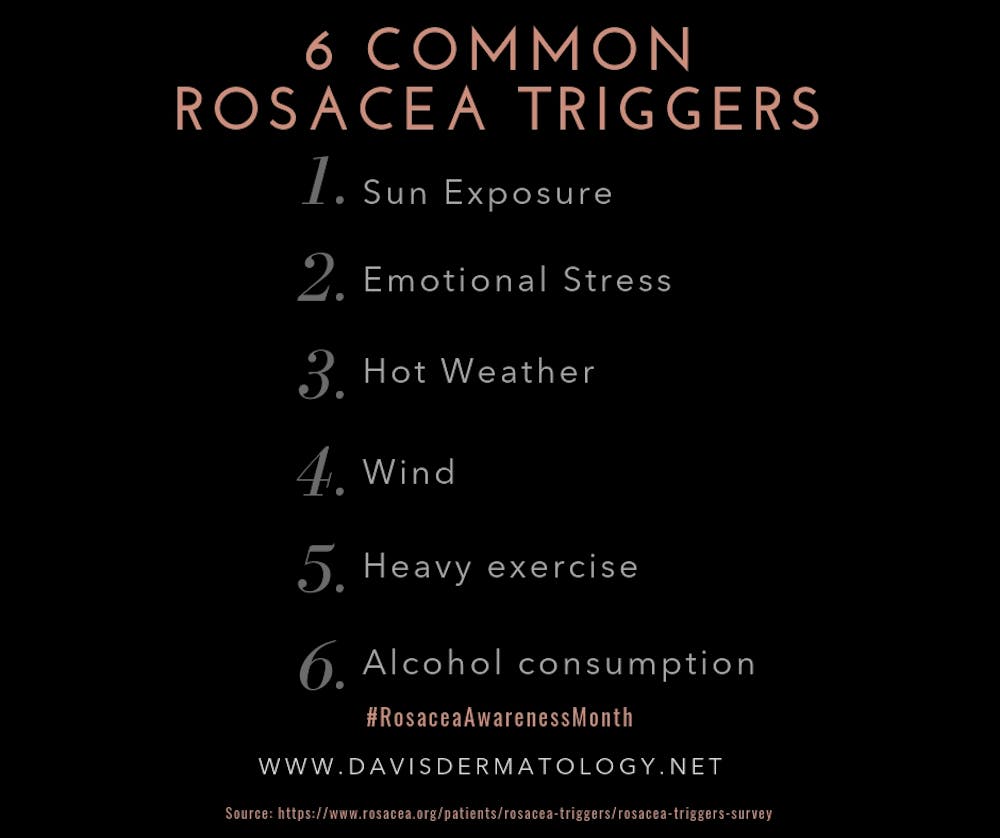Next StepsSchedule a Consultation
Discover treatments tailored to your unique beauty.
Contact Us
April has been designated as Rosacea Awareness Month by the National Rosacea Society, the designation is aimed to improve the education of the uncurable disorder, Rosacea.Rosacea is a common chronic and inflammatory condition that primarily affects the face and is often characterized by emerging blood vessels, redness, and pimple-like bumps.
According to Medical News Today, Rosacea is estimated to have affected over 14 million Americans and possibly many more cases have been unaccounted for due to misdiagnosis.
Rosacea is common amongst fair-skinned individuals, specifically women in their 30’s. Although it is more common in women, Medicine Net reports that Rosacea tends to be worse, or more intense in men.
Individuals with Rosacea are typically affected in the center of the face including the nose and the eyes and other areas such as the scalp, neck, chest, and back.
The exact causes of Rosacea are not fully understood but the chronic condition can be controlled and managed medically.
Rosacea is typically diagnosed from patient history and clinical presentation. Rosacea can be misdiagnosed as acne, eczema, Seborrheic Dermatitis, lupus or sun sensitivity skin disorder.
If Rosacea is left untreated, significant damage to the areas affected may occur.
Currently, there is not a specific test to diagnose Rosacea, instead, local Davis Dermatologist, Dr. Noll says, “Rosacea is typically diagnosed from patient history and clinical presentation. Rosacea can be misdiagnosed as acne, eczema or Seborrheic dermatitis. ”
Although Rosacea is commonly recognized as the blushing of cheeks, there are many lesser-known symptoms, so many that Rosacea has been categorized into 4 subtypes. Some patients may be diagnosed with more than one subtype and each subtype requires different treatment.
The Four Types of Rosacea:
What to do Before Visting Your Dermatologist:
General Treatment is recommended to reduce the chance of flare-ups, this includes incorporating Rosacea-friendly skin care into your daily routine and avoiding Rosacea-triggering factors.
Things to Make Rosacea Better:
Individual’s with Rosacea have sensitive skin and must be careful in choosing products and methods of protecting themselves against the sun.
The American Association of Dermatology recommends

Choosing the right products may be a daunting task to an individual with Rosacea, the slightest irritant could cause a flare-up. That’s why it’s essential to consult with your Dermatologist before incorporating new products into your routine. At Davis Dermatology, we carry various lines of products that are excellent at managing Rosacea. Products available and recommended at Davis Dermatology are the Avène Antirougeurs Fort Relief Concentrate Face Cream to reduce redness, Skin Ceuticals C E Ferulic Serum will reduce redness as well and also protect against UV rays, and lastly, Skin C EltaMD UV Pure Broad-Spectrum SPF 47 Sunscreen to protect from harmful rays.
Things that make Rosacea Worse
Although there are many triggers for flare-ups, the National Rosacea Society reported the following as the 6 most common:

Medical Treatment
Rosacea can be treated with office-based treatments such as Laser Therapies like IPL and Excel V, surgery and dermabrasion. Consulting with your local dermatologist is essential to successfully manage and treat Rosacea in any form. If left untreated, Rosacea can cause serious physical damage to the areas affected.
Each Rosacea subtype requires different treatment.
At Davis Dermatology, we know that skin conditions, such as Rosacea, affect an individual just as much physically if not more, emotionally. We are always here for anyone affected by Rosacea and for anyone looking for an online community for support, comfort, and encouragement, we highly recommend joining an online support group such as https://rosacea-support.org/ .
Sources:
https://www.medicalnewstoday.com/articles/160281.php
https://www.medicinenet.com/rosacea/article.htm#rosacea_facts
https://www.rosacea.org/patients/rosacea-triggers/rosacea-triggers-survey